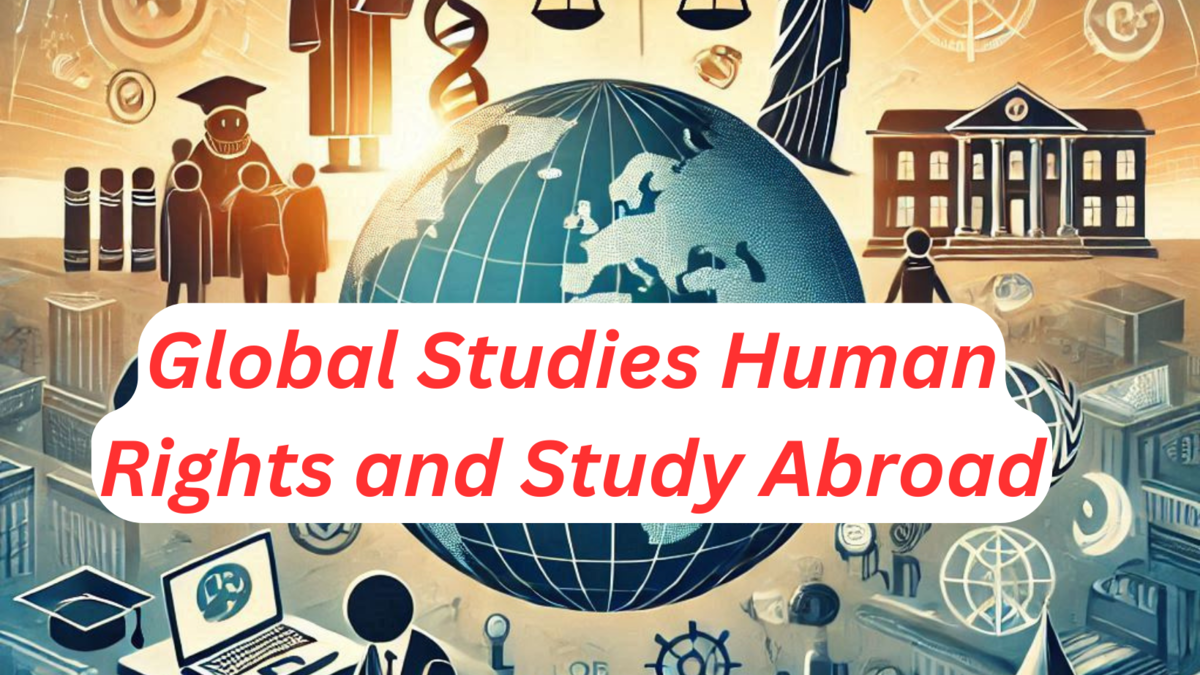Global Studies Human Rights and Study Abroad: The UCLA International Institute brings global perspectives to its students, and Maher Salha, a senior with a double major in global studies and political science, exemplifies how deeply transformative this journey can be. His passion for international politics, law, and human rights was shaped by both academic rigor and personal experiences.
Growing up in Pennsylvania but spending summers in Jordan, Salha volunteered in Syrian refugee camps and traveled across Europe. “Those experiences taught me to see the world through an interdisciplinary lens,” he shared, reflecting on how diverse perspectives shape understanding.
Global Studies Human Rights and Study Abroad
Why Choose UCLA’s Global Studies Program?
Salha chose UCLA for its emphasis on interdisciplinary learning—a cornerstone of its global studies curriculum. “As a freshman, I valued how subjects like anthropology, economics, political science, and history intertwined to offer a complete picture of global issues,” he explained.
For students, this approach isn’t just theoretical; it’s practical and engaging. By integrating these disciplines, the program equips individuals with the analytical tools necessary to address complex global challenges.
Study Abroad: A Catalyst for Personal Growth
The required travel study program adds an experiential layer to the curriculum. Salha opted for a program in The Hague, focusing on international human rights and governance. Reflecting on his experience, he said, “I didn’t want it to end. Every lecture, site visit, and interaction made me more connected to the subject.”
Highlights of The Hague Program
- Coursework on Human Rights History: Students explored topics from the Enlightenment to modern international laws.
- Visits to International Justice Institutions: Tours included the International Court of Justice (ICJ) and the International Criminal Court (ICC), providing firsthand insights into their operations.
- Engaging with Experts: From prosecutors to legal historians, students had unparalleled opportunities to learn directly from practitioners.
The Reality of International Justice
However, the experience was not without its challenges. Witnessing the gap between rulings and enforcement at the ICJ left Salha questioning the efficacy of international justice. “I used to see international law as this unshakable force for good, but seeing its limitations made me rethink everything,” he admitted.
Yet, through discussions with mentors and peers, Salha found a new perspective. While the system isn’t perfect, its existence fosters global credibility and economic influence—outcomes that, while indirect, still matter.
The Power of Perspective
One of the most memorable moments for Salha was observing a trial at the ICC. “It felt surreal, like everything I’d studied had led me to that room,” he said. These moments, paired with group activities like exploring Amsterdam and Rotterdam, fostered lifelong friendships and deepened his understanding of human rights.
Advice for Future Study Abroad Students
Salha’s advice to peers? Approach study abroad with an open mind. “Yes, you might feel homesick, but the friendships you’ll make and the knowledge you’ll gain are worth every moment.”
Conclusion: Transforming Education into Action
Programs like UCLA’s global studies aren’t just about acquiring knowledge; they’re about applying it. By engaging with global challenges firsthand, students like Salha gain tools to create meaningful change. Whether through the lens of international justice or human rights advocacy, this approach cultivates leaders ready to shape a better world.
